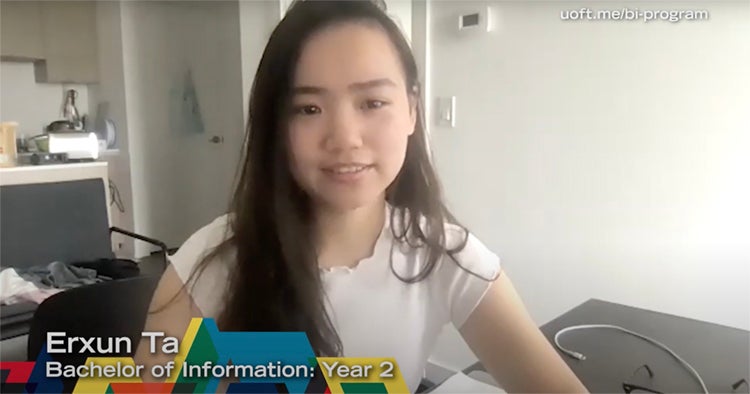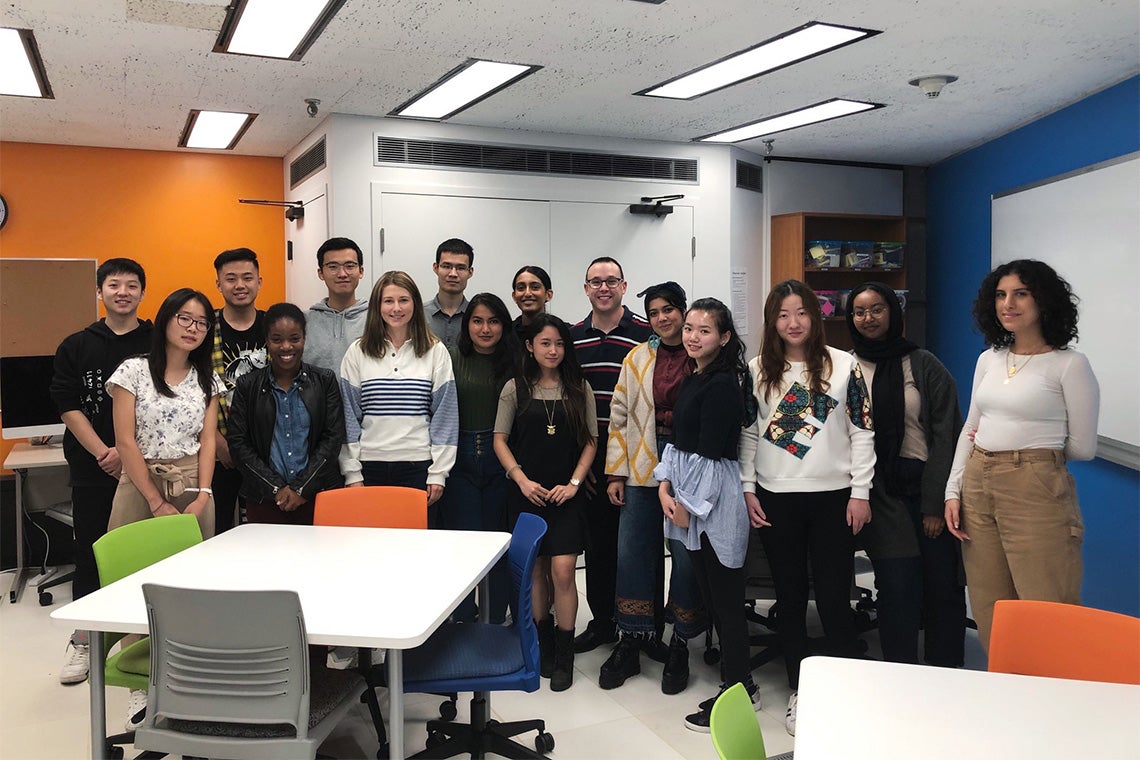First cohort of students to graduate with bachelor of information degree from U of T

The Claude T. Bissell Building next to Robarts Library is home to U of T's Faculty of Information on the St. George campus (photo by University of Toronto)
Published: June 4, 2021
The University of Toronto’s first-ever bachelor of information graduates will receive their degrees this month.
In total, 11 students will make up the inaugural cohort of graduates from the Faculty of Information’s two-year-old program, which caters to students from a variety of backgrounds.
One of those grads is Lena Klassen. She originally came to U of T to study computer science, but found it wasn't for her. So, an adviser suggested she try the new program.
 Lena Klassen (at right) with her classmates prior to the pandemic
Lena Klassen (at right) with her classmates prior to the pandemic
(photo courtesy of Lena Klassen)
“It sounded like a perfect fit for me because of its variety, how it touches on information systems and programming, but also things which I hadn’t explored before like design and policy,” says Klassen, who completed an associate degree in information technology in the United States and worked in the IT industry before attending U of T.
She says she especially enjoyed her design courses and said the program does a good job of communicating and teaching the value of the social sciences, which she says she hadn’t really appreciated before.
The bachelor of information, or “BI,” is a so-called “second entry” program that admits students who have completed their first two years of university in any field.
Students then earn their bachelor’s degree by completing their final two years in the Faculty of Information, taking courses in computational reasoning and information policy and design among others. They also complete a practicum, which gives them hands-on experience in the workplace and the chance to develop professional competencies.
Erxun Ta, an international student from China, came to the program after trying out majors in linguistics, economics and statistics – none of which clicked. She says realized the program reflected her many interests after attending an information session.
 Erxun Ta
Erxun Ta
Ta, who began her studies at the Faculty of Information in the fall of 2019, says she especially appreciated the program’s small class sizes, the sense of camaraderie among students and the attention professors and staff paid to feedback from its inaugural class.
“Whenever we had problems we could reach out to the student services team,” says Ta. “The professors were really caring and thoughtful. The courses were tailored to students.”
While both Ta and Klassen say there remain a few details to be ironed out – the order of required courses, for example – they both say they appreciated that the program was flexible enough to respond to individual students’ personal interests.
Ta, for one, discovered a love of research while completing her degree and plans to return to the Faculty of Information in the fall to complete a master’s degree in user experience design.
She says she’s looking forward to getting back on campus once pandemic restrictions have eased so she can more easily take part informal chats and chance meetings.
For example, Ta says she took a course with Associate Professor Tony Tang and would sometimes run into him in the Bissell Building, leading him to invite her to a reading group with graduate students and to recommend her as a research assistant to one of his doctoral students working on how communications technology in China changed lives during the pandemic.

In 2019, the first cohort of students joined the bachelor of information program in U of T’s Faculty of Information (photo courtesy of Faculty of Information)
Ta, who had originally looked forward to a career in industry, is now contemplating a future in academia.
Klassen, on the other hand, sees the BI as an ideal way to prepare for the certificate she is planning to get in the cybersecurity field after spending the summer with family in Manitoba.
“I think it layers really well,” she says. She adds that the program is ideal “for people who want to work in tech [but] don’t want to be one specific thing.”



